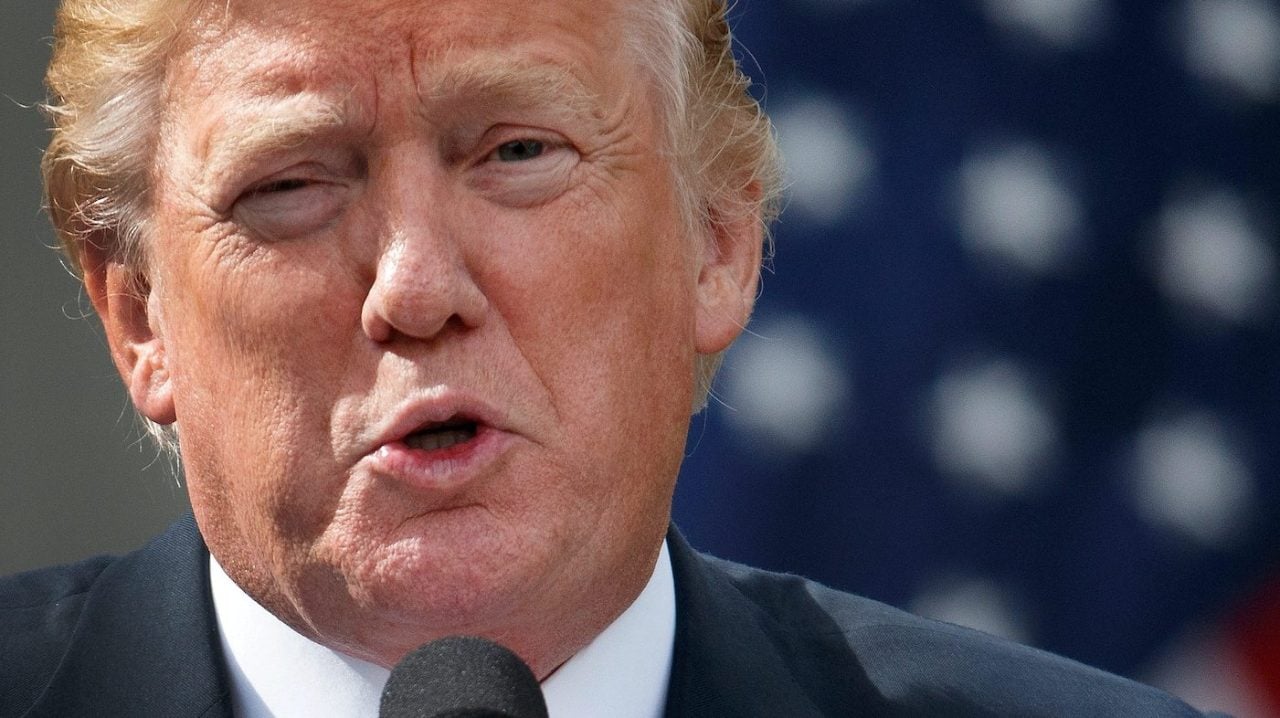Tax cuts and pandemic relief measures enacted during the Trump administration added $8.4 trillion to the national debt over the 10-year budget window, according to a study released Wednesday by a top budget watchdog group.
Discretionary spending increases from 2018 and 2019 added $2.1 trillion, Trump’s signature Tax Cuts and Jobs Act added $1.9 trillion and the 2020 bipartisan CARES Act for pandemic relief added another $1.9 trillion, the Committee for a Responsible Federal Budget (CRFB), a Washington think tank, found in a study released earlier this month.
“Of the $8.4 trillion President Trump added to the debt, $3.6 trillion came from COVID relief laws and executive orders, $2.5 trillion from tax cut laws, and $2.3 trillion from spending increases, with the remaining executive orders having costs and savings that largely offset each other,” budget experts with the CRFB wrote in a summary of the report.
The only significant deficit reduction enacted by the Trump administration noted in the report was due to tariffs levied on a variety of imported goods, which are calculated to have brought in $445 billion over 10 years.



The government is funded by one of two ways- collected through taxes, or through debt. The debt is specifically in the form of treasury bonds, which is a loan paid back over time. the current bond yields for 20 and 30 year bonds are 4.75%.
we’ve been living on debt for years. Decades. Most years, for longer than I’ve been alive, we’ve been functioning off debt. Some of that is unavoidable- when responding to emergencies like COVID or hurricanes or fires… it’s prudent to use that card. But only if one pays off that debt in the relatively near term.
Infrastructure spending is necessary, but it doesn’t directly increase revenue. It does support economic activity, but in the US that is almost all private companies, meaning the only “gains” to US government revenue is through … taxes.
Which means, If we’re not paying more in taxes, then you’re flat wrong about “it paying for itself.”. Oh, and by the way. total revenue has been rather flat comprred to GDP since 2015.
Further more, Interest payment on debt is not something you can take out more debt for. So the solution to sustain long-term deficits like what the US has; is to put everything else on more debt. As you increase the amount of debt (34.1 trillion at the moment), that means, for a given tax revenue, the more we will have to continue using debt.
Dumping 8.4 trillion dollars of spending that we’ve known is needed for decades is bad. It increases our debt burden for generations, the effects of which means increasingly more debt. and the longer we keep having a deficit for things that we know need to be paid… the harder it’s going to be reverse, and the fewer services the US government can provide it’s citizens.
You can make arguments and justifications all you want. The reality is, sustaining a long term deficit is bad, and if it continues, it will eventually lead to the collapse of the US.
Which in turn increases revenue
Perhaps I wasn’t being clear enough. By PUBLIC infrastructure I meant that it would be a government project through and through. No “private-public partnership” bullshit. The government is responsible from top to bottom and as such, none of the trillions of dollars go to shareholders and other rich people skimming off the top.
It would be the biggest public works program since the New Deal, if not even bigger than the New Deal public works programs that were THE most important part of saving the economy from the havoc wrought by the rich and irresponsible back then and it can be again.
As for the rest of your comment, that’s going to be irrelevant with the enormous increase in economic activity and resulting tax revenue to bring DOWN the debt.
Also, I’m not saying not to raise taxes on those who aren’t paying their fair share. It’s possible to walk and chew bubble gum at the same time. I’m just saying that even IF there’s a hypothetical scenario where raising taxes is for some reason not possible, the kind of projects I have in mind would STILL turn a profit from the initial 8.4t investment since all of it is invested right into the tax base and their ability to participate in the economy.
Revenue has largely been flat despite an increase in GDP. explain again how an increase in economic activity- which would be reflected in GDP- increases revenue again?
From the Treasury:
Because most of the increased income has been going to billionaires and their corporations who have been finding ever more ways to avoid paying their fair share. GDP is really bad metric for the country’s economy as a whole when the vast majority of the wealth belongs to very few.
With a colossal public works program NOT involving billionaires and their corporations, the added gains would not be lost to tax avoidance AND most of the money would be going where it’s needed the most (to the working poor and the middle class), making the economy healthier and more efficient, which in turn will itself increase productivity and tax revenue dramatically.